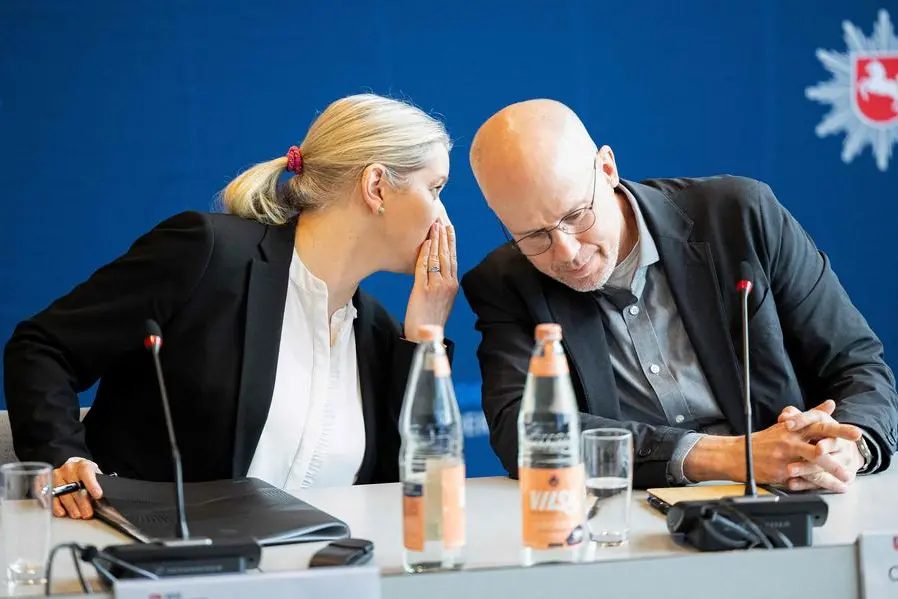PHOTO
German police said Wednesday they had released a man suspected of being a far-left fugitive after authorities found he was not one of two Baader-Meinhof gang members still on the run after 30 years.
The man was arrested in Berlin this week hours after police swooped on wanted fugitive Daniela Klette, 65, at her apartment in the capital.
Klette was part of a long-sought trio from the radical anti-capitalist group also known as the Red Army Faction (RAF), which carried out several bombings, kidnappings and killings that traumatised Germany in the 1970s and 1980s.
Authorities carried out "extensive investigative measures to establish the identity" of the arrested man, Hanover police said in a statement Wednesday.
"There is no doubt that it is not one of the two still-fugitive criminals," they said.
The man was released while police continued to search for the remaining Baader-Meinhof suspects, Ernst-Volker Staub and Burkhard Garweg.
Since the RAF disbanded in 1998, Klette and the two men are believed to have been financing their lives on the run through robberies of money transporters and supermarket cash heists.
Klette showed no resistance as she was arrested at her apartment in a run down building in the Kreuzberg district of Berlin, according to police.
Klette had been living on the fifth floor of the apartment block with her dog, and had a partner of a similar age, according to the popular Bild daily.
Police used fingerprints to identify Klette, who had been using an Italian passport and living under the name "Claudia Ivone", according to magazine Spiegel.
German media published the first photo of Klette seen by the public in almost 30 years taken from a Facebook profile, showing the fugitive with streaks of grey in her hair.
Klette is said to have been active in a capoeira group in Berlin, an interest detailed in a 2023 podcast by public broadcaster RBB, which followed clues towards the fugitive in Berlin.
The anti-capitalist RAF emerged out of the radicalised fringe of the 1960s student protest movement.
Named the Baader-Meinhof gang after two of its early leaders, Andreas Baader and Ulrike Meinhof, the group took up arms against what they saw as US imperialism and a "fascist" German state that was still riddled with former Nazis.
Staub, Garweg and Klette, alleged members of the RAF's so-called "third generation" active during the 1980s and 1990s, are the chief suspects in a 1993 explosives attack against a prison under construction in Germany's Hesse state.
Police swooped on a train in Wuppertal last week after a man was mistaken for Staub.





















